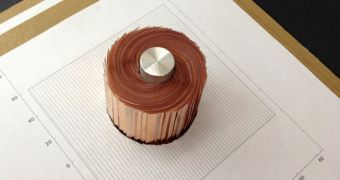A team of experts believes that thermal computers would be a lot more energy-efficient than current devices in this class. They say that the new electronics would run on heat, rather than the flow of electrons through a circuit.
In modern computers, heat is the main problems. As processors and other components are becoming smaller and more capable, they are also producing larger amount of heat. The only way to handle this issue is to use advanced materials and install coolers.
This approach is ineffective because it leads to higher manufacturing costs, and an excessive electricity bill. What experts want to do is use heat – the flow of energy from hotter to colder objects – to power up a new generation of computers and similar instruments.
In the new paradigm, heat emanating from our bodies, or from our surroundings, could be used to power up our personal computers. In order for this to become reality, engineers must first develop advanced ways of conducting heat through materials.
When heating a pipe at one end, for example, heat moves in a straight line to the other end, diminishing in intensity as it gets farther from the heat source. Physicists call this a uniform temperature gradient.
But the experts say that this is not the only way heat can travel through a material. By applying special techniques, it is possible to make heat travel more freely sideways than from top to bottom, Science Now reports. These principles are used in creating electrical components called resistors.
In order to create thermal computers, experts first have to create custom composite materials that are able to conduct heat in a direction that changes throughout. Harvard University physicist Yuki Sato, the author of the new study, says that heat current must be made to resemble electrical current.
It “should be viewed as a medium that can be manipulated, controlled, and processed,” Sato explains. He conducted the new work together with Harvard colleague Supradeep Narayana.
“This is an interesting subject. The manipulation of heat currents has not been studied much or exploited. Nevertheless, there are likely situations where heat currents can be successfully harnessed for computation and other applications,” University of California in Berkeley physicist Alex Zettl says.
Details of the new investigation will be published in an upcoming issue of the esteemed scientific journal Physical Review Letters.

 14 DAY TRIAL //
14 DAY TRIAL //